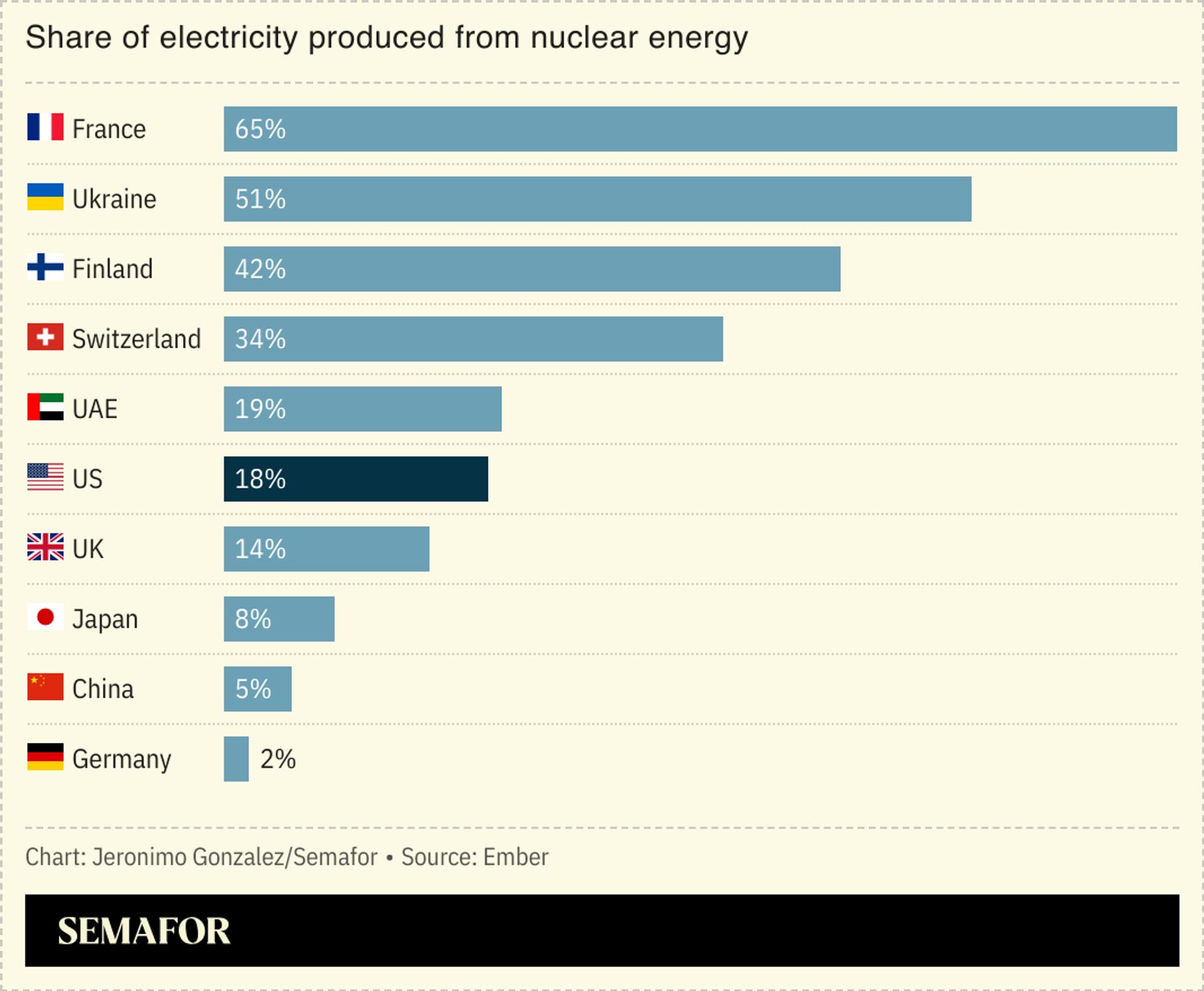The News
US President Joe Biden’s outgoing administration released its roadmap for tripling nuclear energy capacity by 2050, citing the “critical role” nuclear power is poised to play in the green transition.
The net new capacity gains would come from multiple sources, the roadmap said, including new plants and restarted and upgraded reactors.
The US’ northern neighbor also has nuclear ambitions: Canada hopes to become a “one-stop shop” for nuclear material, the BBC reported, making it a uranium “superpower.”

SIGNALS
Trump may back nuclear energy, but subsidy cuts could harm expansion
President-elect Donald Trump is expected to try to undo many of his predecessor’s efforts to slash greenhouse gas emissions, but nuclear energy might be the exception, as it enjoys bipartisan support and backing from tech firms that want to use it to power their data centers, The Verge reported. However, Trump has himself flip-flopped on the issue, telling podcaster Joe Rogan in October that nuclear energy is too expensive and carries “dangers.” Trump’s ally Robert F. Kennedy has also opposed federal nuclear energy subsidies, and the incoming administration’s likely focus on spending cuts is “a concern for a lot of potential customers” of advanced nuclear energy, the executive director of a pro-nuclear advocacy group told Utility Dive.
Nuclear energy isn’t a panacea to the climate crisis
Tech companies need round-the-clock nuclear energy to power their data centers, and advanced nuclear reactors require substantial upfront capital investment, which tech heavyweights are well-placed to provide, experts argued for the Atlantic Council. But even if nuclear energy meets the needs of tech companies, some argue that it doesn’t meet the needs of the green transition: Cheaper options provide more emissions reductions per dollar, and the time it takes to build a nuclear plant is “incompatible with the urgent demands of climate science,” the author of a book on the subject told the University of British Columbia. Still, nuclear energy remains one of many important levers at our disposal, the director general of the International Atomic Energy Agency argued for the World Economic Forum.

